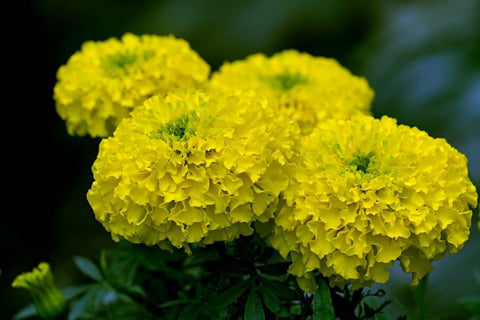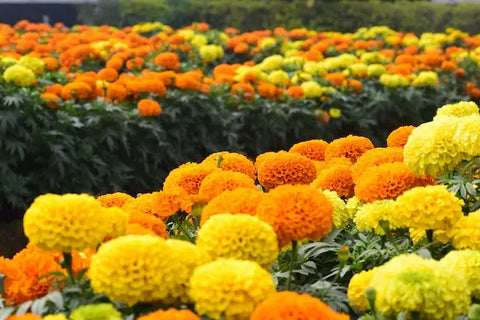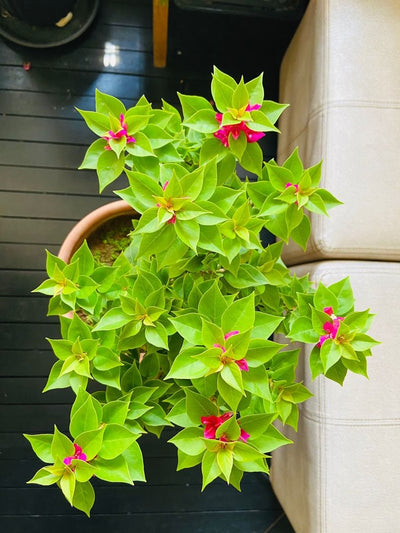Marigold Farming in Polyhouse for Maximum Profits
Step into the enchanting realm of floriculture within polyhouses—a space where marigolds thrive and profits bloom. Marigold, a prized flower of the Asteraceae family, is not just a sight to behold but a treasure trove of commercial potential. India's love affair with marigold runs deep, gracing religious rituals, social gatherings, and even acting as a smart trap crop. With minimal investment and quick growth, marigold emerges as a top choice for cultivators, adorning the landscapes of Maharashtra, Karnataka, Gujarat, Andhra Pradesh, Tamil Nadu, and Madhya Pradesh. As the demand soars during festivals like Dussehra and Diwali, your journey through this marigold guide promises to illuminate the path to abundant polyhouse profits. 🌻🏡
Join me on this floral journey where we unlock the secrets to maximizing profits through efficient cultivation and care. From seed to stunning blooms, let's cultivate success together on my Flowpage.
Soil Requirement: Marigolds are indeed adaptable and can grow in a wide range of soils. However, they thrive in fertile sandy loam soils with good internal drainage. Sandy loam soils provide good aeration and drainage, which is essential for healthy marigold growth. It's important to avoid acidic and saline soils, as these can hinder plant development. The ideal soil pH range for marigold cultivation is between 6.5 to 7.5, which is slightly acidic to neutral.
Land Preparation: To prepare the land for marigold farming, plowing is essential. You can use a tractor or a desi country plough to till the soil until it reaches a fine tilth. This process helps break up clods, improve soil structure, and create a suitable seedbed for planting.
Seed Rate: The recommended seed rate for marigold cultivation is about 1.5 to 2 kg of seeds per hectare (or per unit of land area). This rate may vary slightly depending on local conditions and the specific variety of marigolds being grown.
Growing Season: Marigolds can be grown throughout the year in many regions, provided that the climate is suitable and frost-free. However, the specific growing season can vary depending on your location and local climate conditions. Marigolds are often grown as annuals and will flower and produce seeds within a single growing season.
Propagation: Marigolds are typically propagated from seeds. You can sow the seeds directly into prepared soil or start them indoors and then transplant the seedlings once they have grown a bit. Marigold seeds are relatively easy to handle and germinate quickly under the right conditions.
Here are some Facts of Marigold Farming in Polyhouse 
- Remember, you can adjust and personalize this description according to your specific expertise and the kind of information you'll be sharing on your Flowpage related to marigold farming in polyhouses.
- Marigold farming in Polyhouse is a new and popular farming technique that uses polyethylene sheets in a semi-circular shape.
- The polyethylene sheets help to stabilize the UV rays and promote good photosynthesis in the crops.
- Polyhouse farming can protect crops from high humidity and temperature, as well as pest and insect infestations.




Leave a comment